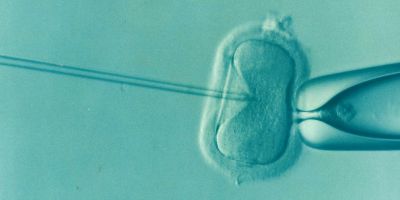Leeds research could see new approach to treating heart attack patients

A British Heart foundation grant to Dr Erica Dall’Armellina at the University of Leeds, is allowing her to continue the study of patients who have had heart attacks.
Dr Erica Dall’Armellina, who is based within Leeds Institute of Cardiovascular and Metabolic Medicine has been working on the project for four years, and has now received a further £350,153 to continue working on the project for a further two years.
 Dr Erica Dall'Armelina, who is leading the project at the University of Leeds - image courtesy of British Heart Foundation
Dr Erica Dall'Armelina, who is leading the project at the University of Leeds - image courtesy of British Heart Foundation
The research uses advanced medical imaging to look at the hearts of patients who have had heart attacks, within 72 hours of the attack happening. By using a highly specialised method of MRI scanning, the team is able to see the damage that has during the attack, and can understand more about the long term implications for each patient. This could lead the way to many more patient-specific treatments for heart attacks, reducing the risk of further complications for recovering patients. An opportunity to learn more about the heart Dr Dall’Armellina, who is an academic clinician, says patients are often really interested to see the scans of their hearts.
“The sort of imaging techniques we use are very advanced and wouldn’t normally be available to patients. By participating in our research, they are given the opportunity to actually see how the heart attack has affected their heart – and to understand a bit more about how we will treat them,” she said.
Dr Dall’Armellina uses a newly developed imaging technique called Diffusion Tensor Imaging (DTI). This highly complex scanning method, which has been implemented in only a few centres worldwide, allows Dr Dall’Armellina and her team to examine changes and damage in the heart tissue following a heart attack. From these images, they aim to better identify patients who may potentially develop further complications such as heart failure or abnormal heart rhythms in an effort to provide early life saving interventions.
Giving something back through research
Steve Hawkins, who is a retired plumber from Bradford, participated in the study following a heart attack in August 2018.
“I suffered a heart attack whilst at a fishing competition last summer. To start with I didn’t even realise it was a heart attack, but the chest pain quickly got worse and an ambulance was called. The paramedics confirmed it was a heart attack, and I was admitted to Leeds General Infirmary (LGI) where I had a procedure to put a stent in my coronary artery.
I was approached by a researcher from the University of Leeds, who gave me some literature to read and to discuss with my family if I wanted to be involved in their study. They said if I participated I would need to participate in 3 tests. One within 5 days of the heart attack, one 3 months later and one after a year.
My granddaughter had open heart surgery at LGI when she was just 6 months old, and another serious operation on her trachea before she was a year. I feel so grateful to the hospital that of course I said I would be involved with this research.
I had my first MRI scan a few days after the heart attack, and the second set of scans in November 2018. I got to look at what the doctors were looking at and they explained more about how MRI scans of the heart work. They showed me on the scan that I have a small area of scarring of my heart muscle but luckily the damage is much less than it could have been, thanks to the amazingly quick actions of the ambulance team and staff at LGI.
The study continues...
Dr Dall’Armellina and her team have collaborated with researchers from Zurich, London and Oxford on this project and have so far worked with around 100 patients. They hope to scan a further 60 over the next two years of the funding.

A cross section of the left ventricle in the heart, showing the difference in detail between DTI scans and previous standard imaging techniques. - image courtesy of British Heart Foundation
BHF Senior Research Advisor Dr Shannon Amoils said:
“Dr Dall’Armellina’s research uses cutting-edge cardiac magnetic resonance imaging techniques to characterise heart muscle damage in detail after a heart attack. The aim is to improve our ability to predict outcomes for heart attack patients, leading to a more personalised approach to treatment.
“1 in 4 people in the UK and 1 in 3 people globally die from heart and circulatory disease. Research like this is vitally important to help us understand more about the world’s biggest killer.”
To find out more about our life saving research in Leeds and across the rest of the UK, please visit www.bhf.org/research




